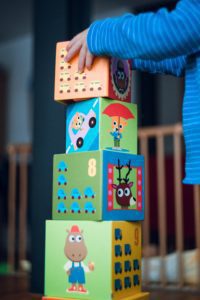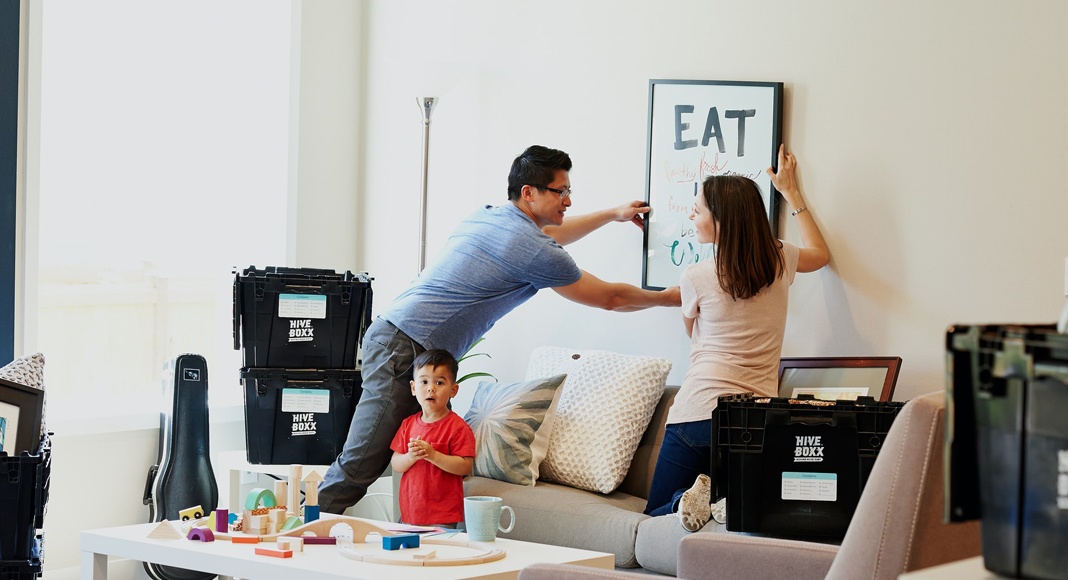Being a mom is such an exciting (and also terrifying!) experience. We get the incredible privilege of raising these tiny humans and watching them grow and develop more and more into people versus little balls of cuteness that coo and giggle and sleep.
As they grow, though, we worry.
If you’re like me, you worry just a little bit about, well, most things. Is he eating enough, sleeping enough, crawling/walking “on time,” talking? Oh man, talking. Few things are as fun as when that little one starts babbling his or her first “real” words. Whether it’s MaMa or DaDa or BaBa or Dog, they’re all new and exciting and oh so CUTE!! Before you know it, your little guy or girl is suddenly learning and speaking new words at a rate you can barely comprehend!
OR he/she isn’t and you start to do what….? WORRY. I get that. It is SO easy to fall down that rabbit hole of, “Is he saying enough?”, “Why isn’t she talking yet?”, or “So and so’s kid talks so much better/clearer/ whatever it is that will make you feel like maybe you’ve done something
wrong as a mom and you’ve ruined your kid”.
First of all, STOP THAT! You’re a great mom and there is absolutely no need to compare your little to anyone else’s. They say comparison is the thief of joy and while it is so cliche, it is also so true. Secondly, we have resources to help guide you through what is and is not typical for your 2-3 year old and we have incredible local speech and language pathologists to help guide you and your child towards healthy development.
One of these awesome providers is Erin L. Kennedy and she is conveniently located right inside of EIRMC’s beautiful Medical Office Building in the back of the EIRMC complex.
I had an opportunity to talk with her and learned so many new tips, tricks, and information I didn’t know about speech and language development and I’m excited to share all of the knowledge with you!
First things first, it’s important to remember that each child develops at his or her own pace. While there is no normal, these are the things your child should be doing around age 2:
- Pointing to a few body parts when you ask
- Following one-part directions like, “Pet the dog”
- Responding to simple questions like, “Who is that?”
- Listening to simple stories, songs, or rhymes
- Pointing to pictures in a book when you name them
- Using a lot of new words
- Using p, b, m, h, and w in words
- Starting to name pictures in books
- Asking questions like “What’s that?”
- Putting two words together like, “More apple”
Some of you may be saying, “Me son doesn’t do those things yet!” And that’s OK. There is a very large range of normal and there are many things we can do as parents to encourage language development such as:
- Reading books with our child and pointing objects out
- Spending independent time with each child if siblings are present to ensure that each child has an opportunity to speak without being spoken for by a brother or sister
- Pointing and identifying objects when out and about such as dogs, trucks, signs, and buildings

Speech and language are everywhere. It’s important to remember that language is learned in a child’s environment and speech is a gross motor skill that has to be practiced and developed much like an instrument would be.
Now, say that you’re starting to worry that your child isn’t typically developing. Here are some signs that may encourage you to reach out to a speech therapist:
- Your child cannot follow basic 2-step directions by age 3
- Your child doesn’t make eye contact while communicating or playing with you
- Your child doesn’t speak at least 50 words by the end of his second year
- Your child mixes up vowel sounds within words like saying “dig” instead of “dog” or “bay”
instead of “boy”
These could be signs that there is a delay or disorder. Speech delays/disorders can be caused by several things including hearing problems, oral motor skill deficiency, tongue or lip ties, improper jaw positioning, or frontal lobe disconnects. While some of those may be diagnosed and remedied at home, a Speech Language Pathologist is familiar with the different causes of delayed/disordered speech and can alleviate some stress by diagnosing the problem and creating a plan to solve it.
In some cases, the child’s brain is incorrectly signaling and a professional is needed to help rewire and retrain the brain. If in doubt, begin logging your child’s words at home. Create a list of words your child says and add to it as new words develop. You can also guide your child by providing a book in which your child can identify objects such as food or animals. Keep in mind, we as humans possess three times the receptive understanding of language versus that which we can verbalize. That means your child may be able to point at the picture of the dog when prompted but when asked what that picture is on its own, your child may not be able to verbalize the word.
If you are truly worried that your child has delayed/disordered speech or language, you can simply call his or her pediatrician to set up a referral with a Speech Pathologist. EIRMC has a wonderful practice located behind the main EIRMC building and their Speech Pathologists are outstanding and passionate about helping children. Once a referral is obtained, you’ll set up an appointment and speak on the phone with a Speech Pathologist about your concerns. You may contact EIRMC’s Pediatric Therapy office at (208) 529-7982! Following that, you will set an appointment to meet with your child and the Speech Pathologist for testing and evaluations. These tests may include checking your child’s ability to label items or point to particular items on a page and may also include a referral for a hearing evaluation. Bring any information you have such as your word logs. Once needs are assessed, goals will be written to fit the family’s biggest needs and parental involvement is encouraged at every appointment and every goal along the way.
Being a mom is an immense task. With or without delays in speech and language, our job is difficult even on the easy days. While I am confident in my skills as a mother, I recognize I am not a professional at everything and I am grateful to have incredible professionals in our area that can help my kids grow, develop, and be the very best versions of themselves.













